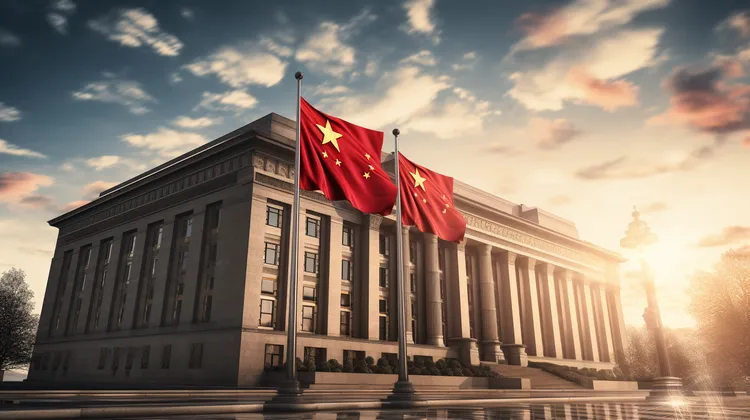
PBoC Calls for Global Crypto and DeFi Regulation
The emergence of cryptocurrencies and decentralized finance (DeFi) has dramatically reshaped the financial landscape across the globe, introducing novel assets and innovative mechanisms for financial transactions. As these digital assets gain prominence, central banks worldwide, including the People’s Bank of China (PBoC), emphasize the imperative for robust global regulation. Amid concerns about financial stability, fraud, and illicit activities, China’s central bank is taking a stance that could influence international regulatory approaches and affect the crypto sphere deeply.
The rise of digital currencies presents an array of challenges and opportunities to traditional financial systems. On the one hand, they promise increased financial inclusion, cheaper and faster cross-border transactions, and heightened privacy for users. They pose significant risks relating to money laundering, terrorism financing, and systemic financial stability. The decentralized nature of cryptocurrencies complicates the jurisdictional approach to regulation, often allowing them to bypass national regulatory frameworks.
The PBoC’s stance on cryptocurrency is unequivocal. Having banned domestic crypto exchanges in 2017 and further cracking down on all crypto-related activities, including mining, in 2021, China is one of the most restrictive nations regarding digital assets. This hard-line approach reflects the Chinese government’s priority on maintaining financial stability and control over its economic system. It also underscores the PBoC’s view that unchecked crypto markets can be breeding grounds for financial malfeasance and speculative bubbles.
The call for global regulation from the PBoC is therefore consistent with its domestic policy. It advocates a coordinated international regulatory framework to prevent regulatory arbitrage, where crypto businesses move to jurisdictions with looser regulations, and to manage the systemic risks that could arise from a burgeoning global crypto market. A cohesive strategy involving the world’s financial watchdogs could pave the way for a more secure and stable digital financial environment.
The PBoC’s concerns about DeFi are particularly pointed. DeFi platforms allow for financial activities, such as lending and borrowing, to be conducted in a peer-to-peer manner, without traditional financial intermediaries like banks or brokers. This concept challenges the very foundations of the central banking system and raises questions about how to ensure consumer protection and anti-money laundering compliance in a system inherently designed to be free from central oversight.
To effectively regulate DeFi, the PBoC suggests a strategy that involves enhancing the understanding of DeFi operations among global regulators. It recommends developing sophisticated tools to monitor and mitigate potential risks arising from the rapid evolution of the DeFi space. Practical regulation may include requiring DeFi platforms to implement Know Your Customer (KYC) and Anti-Money Laundering (AML) programs, despite the technical and ideological challenges that this would present.
Promoting global regulation in the crypto and DeFi markets is fraught with complexities. Different countries have varying degrees of openness to digital currencies and have taken diverse approaches to regulation, ranging from outright bans to comprehensive legal frameworks that encourage innovation while aiming to protect consumers and maintain financial order.
The digital currency initiatives of central banks themselves complicate the landscape. With the PBoC at the forefront of developing and testing its digital currency, the Digital Currency Electronic Payment (DCEP), it has clear implications for global crypto regulation. The success of a sovereign digital currency from a major economy like China could set precedents for how digital assets are used and regulated worldwide.
The call from PBoC comes at a time when international institutions such as the Financial Stability Board (FSB), International Monetary Fund (IMF), and the Bank for International Settlements (BIS) acknowledge the need to assess and address the financial stability risks of crypto-assets. On their agenda is the task of building an international consensus that accommodates the diverse views and interests of different countries while still forging an effective regulatory framework.
The vision for a globally coordinated regulation involves aligning the efforts of national regulators, international standards-setting bodies, and industry stakeholders to navigate a fast-evolving technological landscape. It requires delicate balancing between fostering innovation and ensuring that this new frontier does not undermine global financial security.
As the PBoC pushes for this comprehensive regulatory effort, the crypto and DeFi industries watch attentively. The potential harmonization of international regulatory standards will likely influence the pace of innovation, the adoption of these technologies, and their eventual integration into the broader financial system. The outcome of this global regulatory dance, with the PBoC as one of its most vocal proponents, could very well shape the future of finance for years to come.